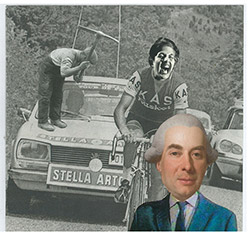
The free improvising Amsterdam quintet of Andrius Dereviancenko (tenor saxophone), Henk Zwerver (guitar), Nico Chientaroli (piano and keyboards), Raoul van der Weide (bass, objects and squat box) and Onno Govaert (Tilburg, drums) are heard in this live recording at Zaal100 in 2020 for a quirky and first rate free jazz album of wry humor and impressive skill.
In Stock
Quantity in Basket: None
Log In to use our Wish List
Shipping Weight: 1.00 units
EU & UK Customers:
Discogs.com can handle your VAT payments
So please order through Discogs
Sample The Album:
Andrius Dereviancenko-tenor saxophone
Henk Zwerver-guitar
Nico Chientaroli-piano, keyboards
Raoul van der Weide-bass, objects, cracklebox
Onno Govaert-drums
Click an artist name above to see in-stock items for that artist.
Label: Self Released
Catalog ID: None
Squidco Product Code: 29518
Format: CD
Condition: New
Released: 2020
Country: Netherlands
Packaging: Cardboard sleeve
Recorded live at Zaal100, in Amsterdam, the Netherlands, on January 14th, 2020, by Hayden Hook.
"The capital city free improvisation circuit remains very much alive and interesting. The musicians who are part of it always know how to find different combinations and new musical paths, while you can often hear that the music originates from the Amsterdam scene, while that scene is by no means populated by purely original Mokummers.
Take the quintet Scrambled Harmonies, consisting of Andrius Dereviancenko (tenor saxophone), Henk Zwerver (guitar), Nico Chientaroli (piano and keyboards), Raoul van der Weide (bass, objects and squat box) and Onno Govaert (Tilburg, drums). It is certainly not a pure Randstad get-together when it comes to the origin of the musicians. Yet together they form a capital ensemble whose musicians perform (outside the corona crisis) in halls such as De Ruimte and Zaal 100.
The latter location is where Stella Art was recorded in January of this year. The album consists of six pieces, free improvisations by a quintet that puts joint improvisation first, so above the ego of the soloist. There is some isolation, but within the framework of the five. Incidentally, these frameworks are not fixed, they are not a straightjacket but a shape-changing, moving organism to which the musicians must always respond.
Besides improvising together, the experiment is also the starting point of the five improvisers. Don't expect a tight division between rhythm section and piano, guitar and sax. Every voice counts equally and every musician is an experimental part in the music. This sometimes leads to wonderfully rumbling music, such as in the opening track 'Pointing', in which the sax plays a repeating motif, on which it varies, and around which there is a coming and going of phrases that the other musicians play. The percussion is everywhere and is supported by short plucked and plucked notes from the guitar and crazy keyboard riffs. In the second part of the improvisation, Dereviancenko lets go of his motif and the game becomes almost chaotic. Almost, because no matter how individually the players are busy, the togetherness is not lost sight of.
"Sofa Spud", the longest piece on Stella Art, opens quietly with bass, drums and piano. Slowly but surely that peace is increasingly disturbed by successive short phrases of the guitar. The other musicians perceive the musical nervousness and build on it. Van der Weide and Zwerver find each other in lively play, after which Chientaroli and Dereviancenko try to restore peace. Govaert subtly and less subtly disturbs that rest on cymbals, snare and toms. This creates a game of attraction and rejection, of tension and relaxation, often in a short period of time. Around the seventh minute, Van der Weide is the one who ushers in a jazzy piece with fast bass lines, which Zwerver and Govaert immediately pick up on, followed by the others, so that we suddenly find ourselves on free jazz territory,
"Cracklescramble" is the attractive title of the third piece, in which Van der Weide's crack box appears, next to playing on his bass. This results in a somewhat peculiar sounding, playful improvisation in which the other musicians also participate, initially based on those weird sounds from that box, but increasingly looking for their own ways. The beginning of 'Extended Undertone' is heavier, which is due to the heavy drum part of Govaert. But also Zwerver and the furiously lashing out Dereviancenko are making a contribution. The strange noises are nowhere to be seen and the movement goes forward in fits and starts. Chientaroli's piano and Fender Rhodes populate the musical surface after more than four minutes and enter a quiet phase, which is partly shaped by the exciting long notes and air of the sax. Govaert and Zwerver, who is raging on his acoustic guitar, lead the piece back in more turbulent conditions.
"Skin Tone" opens with a sax solo that reveals Dereviancenko's soulful side as well as the urge to experiment. As soon as the other musicians came in, they left again for a pleasant chaotic route, which this time, however, only lasts for a short time. It closes with "Didn't We Do This Before", which has a shaky start, which only comes to an end when Chientaroli changes course with a subtle piano part. The musicians' playing is fragmented, so that one inspiration after another comes along. The piece also contains the necessary tension, especially when Dereviancenko addresses his top register, Govaert sets accents with cymbals, snare and bass drum, Chientaroli joins in with small and sometimes dissonant chords and Zwerver is busy with staccato playing.
Five musicians of different origins and ages find each other in six fantasy and colorful improvisations. With their individual voices, the musicians color the pieces in an experimental and original way. The common roads turn out to be winding paths, but the focus is maintained, no matter how crooked and crooked the music sometimes sounds. The urge for musical freedom is great, which of course is somewhat curtailed if you improvise with five musicians. Yet there is a lot of room for individual expression, although the togetherness remains the higher goal. Stella Art is a fresh and attractive improvisation album."-Opduvel, Pop Up (translated by Google)
Get additional information at Opduvel
Artist Biographies
• Show Bio for Andrius Dereviancenko "Born in Klaipeda, LT, Andrius Dereviancenko had his first musical experiences at the age of 12 when he was exposed to classical music and began playing the Birbyne, a Lithuanian folk instrument. He received his first saxophone at the age of 17 and enrolled at the Klaipeda Stasys Simkus music high school where he was introduced to jazz by playing big band and dixieland music. After 4 years of studying and performing in Lithuania, Andrius relocated to Netherlands for one year of Erasmus studies at the Prince Claus Conservatorium in Groningen, then subsequently at the Conservatorium van Amsterdam where he received his Bachelor of Music degree in Jazz Saxophone. During his studies in Amsterdam, Andrius regularly performed with various jazz groups within Europe including several international competitions. In 2013, he won the Leiden Jazz Award with the Andrius Dereviancenko Quartet and won the Public and Best Composition prize at Tremplin Jazz Avignon with the band Morgan Freeman in 2016. Following his studies and a brief period in Copenhagen, he moved back to Amsterdam where he currently resides and is active in the experimental music scene throughout Netherlands, Belgium, France, Germany, Poland, Denmark, Latvia, Lithuania, Estonia, Russia, Spain, Italy and more." ^ Hide Bio for Andrius Dereviancenko • Show Bio for Henk Zwerver Henk Zwerver is a Netherlands based guitarist and improviser. He has participated in groups Strings5 and Zwerv, and has performed with Raoul van der Weide, George Hadow, Ziv Taubenfeld, and Luis Vicente. ^ Hide Bio for Henk Zwerver • Show Bio for Nico Chientaroli "Nico Chientaroli (Buenos Aires, 1982) Argentinian pianist, improviser and composer Nico Chientaroli started his career playing with different bands in Buenos Aires. He always felt strongly attracted to improvisation. Therefore he formed his trio recording three albums where he explored improvisation through his compositions. He also participated in many projects related to jazz and improvisation in Buenos Aires. He moved to Amsterdam in 2013 to continue with his work and development. As a pianist, he explores and expands the boundaries of the piano developing a very personal way of playing. In reviews his music is described as "a magnificent and extraordinary journey of sound. Some Improvisations enable beautifully structured and impressively melodic textures to surface." Until now, Nico Chientaroli has played with improvisers such as Ab Baars, Ig Henneman, Michael Moore, Mary Oliver, Wolter Wierbos, Michael Vatcher, Ada Rave, Raoul van der Weide, Richard Barret, Carlo Mascolo, Felicity Provan, Mars Williams, Wilbert De Joode, Nicola Hein, William Parker, John Dikeman, Carl Ludwig Hübsch, Jasper Stadhouders, Onno Govaert, dancers Kenzo Kusuda, Ana Leonor Ladas and Makiko Ito among others." ^ Hide Bio for Nico Chientaroli • Show Bio for Raoul van der Weide "Raoul van der Weide (Fontenailles / Fr, 1949) played 6 years of classical violin in the Northern Netherlands Youth Orchestra. As a bassist he developed largely autodidactic but also studied classical double bass at John Clayton and Norma Brooks. Contrast point at Guus Janssen. Feel inspired by inspiration and improvisational practice in the free but unstructured views of various musicians like Paul Termos, Guus Janssen, Lennie Tristano, Misha Mengelberg, Jimmy Giuffre, Steve Lacy, Ornette Coleman, Derek Bailey, Charles Mingus and Munir Bashir. As an improviser, the creative focus is on the development possibilities of open personal aesthetics in the broadest sense. The continued deepening of its own sound, intonation and power of expression - of the musical fingerprint - is considered important.Van Raoul van der Weide published the solo CD 'Passages' (GeestGronden # 24 / www.geestgronden.com) at the beginning of 2006, to which De Volkskrant and promising 4 stars discussion was dedicated. Worked together in Bert Koppelaar's POINT OF ORCHESTURE, Paul Termos Trio, Guus Jansen Septet / Octet / Orchestra, Burton Greene Quartet / Trio Spazio Trio (with K. Bauer and Guenther Sommer), Luc Houtkamp Quartet, Ab Baars Sextet, Peter Zegveld projects ('Caspar Rapak' and 'Statua Tumultus'), The Gravitones (Winners Dordtse Jazz Prize 1995), Joost Buis & The Famous Astronotes, Sound-Lee! Quartet ('Plays the Music of Lee Konitz'), New Crosscurrents Sextet." ^ Hide Bio for Raoul van der Weide • Show Bio for Onno Govaert Onno Govaert is a drumer from Amsterdamn performing free jazz, swing and rock. He is a member of Cactus Truck with Jasper Stadhouders and Wilbert de Joode, and has also recorded with Andy Moor, Colin McLean, and John Dikeman, and with Dave Rempis and Frank Rosaly. ^ Hide Bio for Onno Govaert
7/9/2025
Have a better biography or biography source? Please Contact Us so that we can update this biography.
Have a better biography or biography source? Please Contact Us so that we can update this biography.
7/9/2025
Have a better biography or biography source? Please Contact Us so that we can update this biography.
7/9/2025
Have a better biography or biography source? Please Contact Us so that we can update this biography.
Have a better biography or biography source? Please Contact Us so that we can update this biography.
Track Listing:
1. Pointing 6:37
2. Sofa Spud 11:46
3. Cracklescramble 5:19
4. Extended Untertones 9:36
5. Skin Tone 3:10
6. Didn't We Do This Before....? 7:35
Improvised Music
Jazz
Free Improvisation
European Improvisation, Composition and Experimental Forms
Quintet Recordings
Objects and Home-made Instruments
Search for other titles on the label:
Self Released.


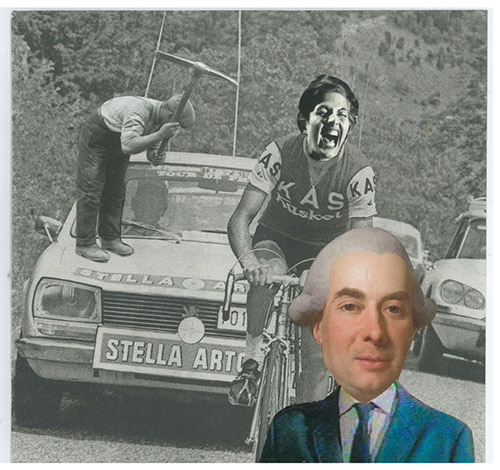

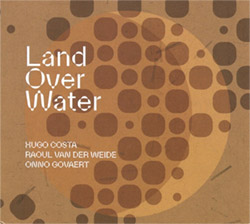
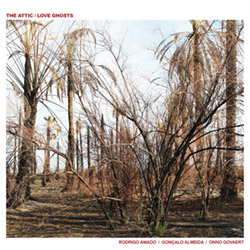
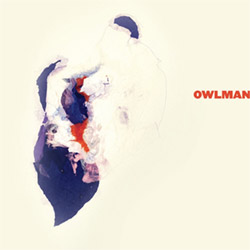
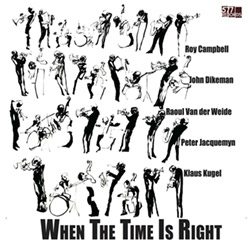


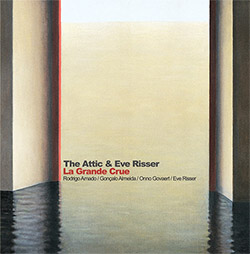
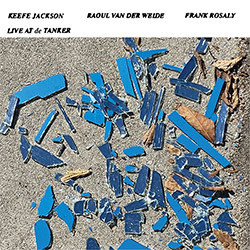

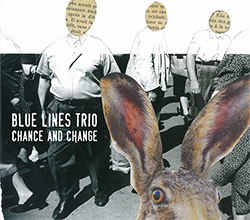
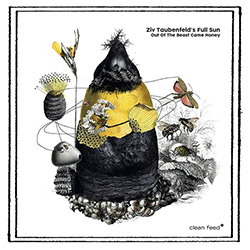



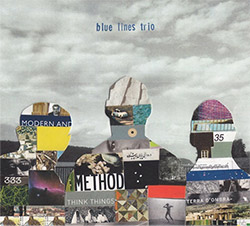
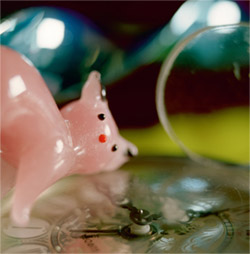
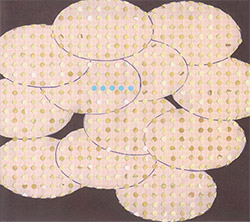

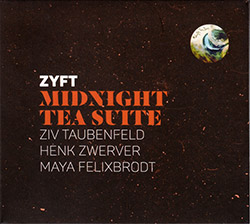

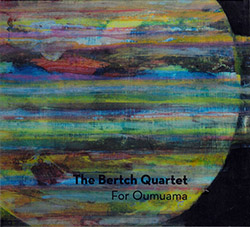

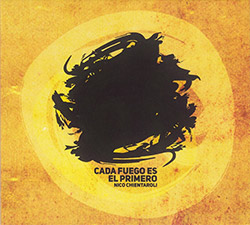
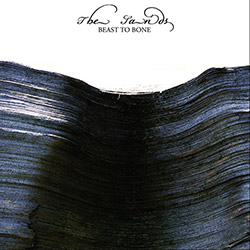
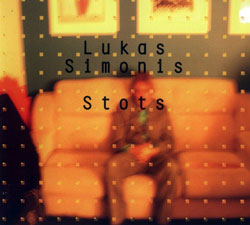




![BlueRing Improvisers: Materia [2 CDs]](https://www.teuthida.com/productImages/misc4/36513.jpg)








![Wheelhouse (Rempis / Adasiewicz / McBride): House And Home [VINYL]](https://www.teuthida.com/productImages/misc4/36462.jpg)
![+DOG+: The Light Of Our Lives [2 CDs]](https://www.teuthida.com/productImages/misc4/36009.jpg)


![Parker, Evan / Jean-Marc Foussat: Insolence [VINYL]](https://www.teuthida.com/productImages/misc4/36398.jpg)










![Deupree, Jerome / Sylvie Courvoisier / Lester St. Louis / Joe Morris: Canyon [2 CDs]](https://www.teuthida.com/productImages/misc4/36404.jpg)



![Eventless Plot | Haarvol: The Subliminal Paths [CASSETTE + DOWNLOAD]](https://www.teuthida.com/productImages/misc4/36232.jpg)










![Eventless Plot | Francesco Covarino: Methexis [CASSETTE + DOWNLOAD]](https://www.teuthida.com/productImages/misc4/36231.jpg)



![Das B (Mazen Kerbaj / Mike Majkowski / Magda Mayas / Tony Buck): Love [VINYL]](https://www.teuthida.com/productImages/misc4/36329.jpg)


![Eternities: Rides Again [CASSETTE]](https://www.teuthida.com/productImages/misc4/36247.jpg)
![Lopez, Francisco: Untitled (2021-2022) [2 CDs]](https://www.teuthida.com/productImages/misc4/36438.jpg)






![Money : Money 2 [2 CDs]](https://www.teuthida.com/productImages/misc4/35894.jpg)




![Klinga, Erik: Elusive Shimmer [VINYL]](https://www.teuthida.com/productImages/misc4/36258.jpg)
![CHANGES TO blind (Phil Zampino): Volume 9 - I Wave on a Fine Vile Mist [CD + DOWNLOAD]](https://www.teuthida.com/productImages/misc4/36061.jpg)

![Wallmart / Rubbish: Asset Protection [split CD]](https://www.teuthida.com/productImages/misc4/35900.jpg)


![+Dog+: The Family Music Book Vol. 5 [2 CDs]](https://www.teuthida.com/productImages/misc4/35897.jpg)
![Kuvveti, Deli : Kuslar Soyledi [CASSETTE w/ DOWNLOAD]](https://www.teuthida.com/productImages/misc4/36107.jpg)

![Brown, Dan / Dan Reynolds: Live At The Grange Hall [unauthorized][CASSETTE]](https://www.teuthida.com/productImages/misc4/36245.jpg)








![Palestine, Charlemagne / Seppe Gebruers: Beyondddddd The Notessssss [VINYL]](https://www.teuthida.com/productImages/misc4/36206.jpg)
![Palestine, Charlemagne / Seppe Gebruers: Beyondddddd The Notessssss [NEON GREEN VINYL]](https://www.teuthida.com/productImages/misc4/36207.jpg)

![Laubrock, Ingrid: Purposing The Air [2 CDs]](https://www.teuthida.com/productImages/misc4/35639.jpg)

![Yoko, Ono / The Great Learning Orchestra: Selected Recordings From Grapefruit [2 CDs]](https://www.teuthida.com/productImages/misc4/35841.jpg)









![Zorn, John / JACK Quartet: The Complete String Quartets [2 CDs]](https://www.teuthida.com/productImages/misc4/35609.jpg)

![Lonsdale, Eden: Dawnings [2 CDs]](https://www.teuthida.com/productImages/misc4/35480.jpg)



![Sorry For Laughing (G. Whitlow / M. Bates / Dave-Id / E. Ka-Spel): Rain Flowers [2 CDS]](https://www.teuthida.com/productImages/misc4/35985.jpg)

![Rolando, Tommaso / Andy Moor : Biscotti [CASSETTE w/ DOWNLOADS]](https://www.teuthida.com/productImages/misc4/36106.jpg)


![Electric Bird Noise / Derek Roddy: 8-10-22 [CD EP]](https://www.teuthida.com/productImages/misc4/35970.jpg)








![Elephant9 : Mythical River [VINYL]](https://www.teuthida.com/productImages/misc4/34624.jpg)



![Elephant9 with Terje Rypdal: Catching Fire [VINYL 2 LPs]](https://www.teuthida.com/productImages/misc4/35355.jpg)
![Deerlady (Obomsawin, Mali / Magdalena Abrego): Greatest Hits [VINYL]](https://www.teuthida.com/productImages/misc4/34876.jpg)







![Surplus 1980: Illusion of Consistency [CD]](https://www.teuthida.com/productImages/misc4/35069.jpg)
![Staiano, Moe: Away Towards the Light [VINYL + DOWNLOAD]](https://www.teuthida.com/productImages/misc4/35037.jpg)
![Coley, Byron: Dating Tips for Touring Bands [VINYL]](https://www.teuthida.com/productImages/misc4/17906.jpg)

![Lost Kisses: My Life is Sad & Funny [DVD]](https://www.teuthida.com/productImages/misc4/lostKissesDVD.jpg)